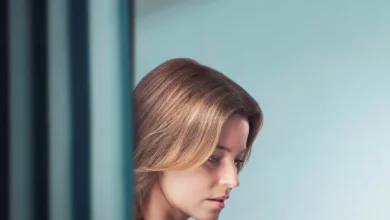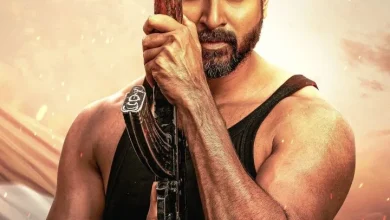
The Architecture of Love (2024) is an Indonesian romantic drama that explores the intersection of love, passion, and personal growth. Based on the popular novel of the same name by Ika Natassa, the film is directed by a renowned Indonesian filmmaker and brings together themes of architecture, creativity, and self-discovery against the backdrop of a picturesque city.
Plot Summary:
The story revolves around Raia (played by Dian Sastrowardoyo), a successful but emotionally drained novelist struggling with writer’s block. After a painful breakup, she escapes to New York City to find inspiration and heal her wounds. There, she meets River (played by Reza Rahadian), a brilliant yet introverted architect who is also grappling with personal issues. River is working on a major architectural project that he hopes will define his career, but like Raia, he feels lost.
As the two navigate their personal struggles, they form an unexpected bond that deepens as they explore the city together. Through their conversations about art, architecture, and love, they begin to rediscover themselves and reignite their creative passions. Their relationship slowly transforms from friendship into something deeper, but both must confront their emotional scars before they can fully embrace the possibility of a new beginning.
Strengths:
- Beautiful Cinematography: The film is visually stunning, with breathtaking shots of New York City’s architectural landmarks that highlight the connection between the characters and their surroundings. The cinematography adds a romantic and dreamlike quality to the story, enhancing the emotional depth of the characters’ journey.
- Strong Performances: Dian Sastrowardoyo and Reza Rahadian deliver standout performances as Raia and River. Their chemistry is palpable, and their portrayals of two emotionally guarded individuals finding solace in each other are heartfelt and convincing. Sastrowardoyo’s nuanced performance as a woman trying to reconnect with her creative self is particularly moving.
- Emotional and Thoughtful Storytelling: The film takes its time to explore the inner lives of its characters, allowing the audience to connect with their emotional struggles. Themes of healing, self-discovery, and the creative process are woven into the narrative in a way that feels authentic and relatable. The dialogues about architecture and writing serve as metaphors for life and love, adding depth to the story.
- Cultural Richness: Although set in New York, the film maintains a connection to Indonesian culture, particularly through Raia’s memories and reflections. This blend of cultures enriches the story, offering a unique perspective on universal themes of love and personal growth.
Weaknesses:
- Pacing Issues: The film’s slow pacing may not appeal to all viewers, particularly those expecting a more traditional romantic drama. The focus on introspection and character development takes precedence over plot-driven action, which may lead to some scenes feeling prolonged.
- Predictable Romantic Tropes: While the film presents a unique narrative through its themes of architecture and creativity, the romance itself follows some familiar tropes. The “emotionally scarred characters who find healing in each other” theme is well-executed, but it may feel predictable for viewers familiar with the genre.
- Limited Supporting Characters: The film primarily focuses on Raia and River, with supporting characters playing relatively minor roles. While this allows for a deep dive into the protagonists’ emotional arcs, it may leave some viewers wishing for more interaction with the secondary cast, which could have added layers to the story.
Conclusion:
The Architecture of Love (2024) is a beautifully crafted Indonesian romantic drama that explores love, creativity, and personal transformation. With strong performances from Dian Sastrowardoyo and Reza Rahadian, and stunning cinematography that highlights the connection between art and emotion, the film offers a deeply emotional and visually engaging experience.
While its slow pacing and familiar romantic tropes may not appeal to all viewers, the film’s thoughtful storytelling and exploration of personal growth make it a compelling watch for fans of introspective romances. The Architecture of Love is a heartfelt story about finding inspiration, healing from past wounds, and embracing the possibility of new beginnings.




